"Jinya" refers to "golden buds", which, as may be seen below, are well-represented in this cake's blend. I am usually a touch skeptical of such cakes, being milky and smooth, but not entirely great after periods of aging - but you never know.
It is a fluffy, wispy cake. It is so loose and fluffy, in fact, that merely stroking the surface of the bing causes leaves to fall from it like autumnal blossoms, with a correspondent cloud of fur pluming up into the air.
It is very easy to remove leaves: I could simply shake the cake a little, and receive enough for a session. You have to admit, chunya [pure bud] leaves do look pretty, as pictured below.
This has a yellow-brown soup, and packs a considerably punch, surprisingly. Perhaps we can thank the Banzhang (or Banzhang-area) leaves for that.
As with all furry, chunya cakes, it is exceptionally smooth, especially in the first infusions. I sometimes wonder if this is the effect of all that fur. It is sweet, and so very delicate.
It is the perfect cake for a hot summer day. Unfortunately, this being England, it's cold and raining. C'est la vie.
At 100 RMB via Taobao, this isn't a cheap cake (relative to mainland prices), and this is probably accounted for the double premium of being both chunya and being from Banzhang.
It lasts well, unlike its peers in this genre, and has plenty of wildflowers - almost lavender - in the background that remind me of my family home in East Anglia. A charming session, with thanks to Keng both for this cake and for his munificence in providing so much good tea for us.

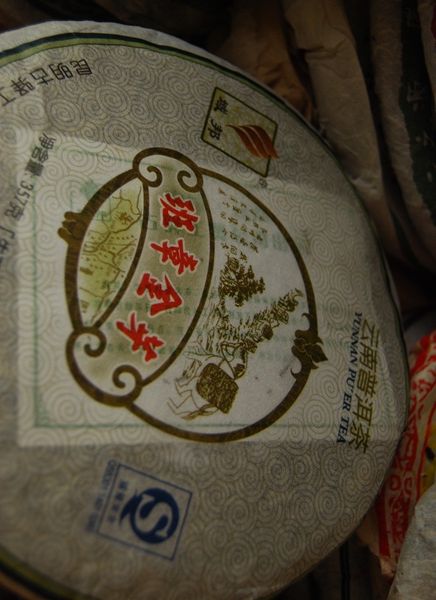
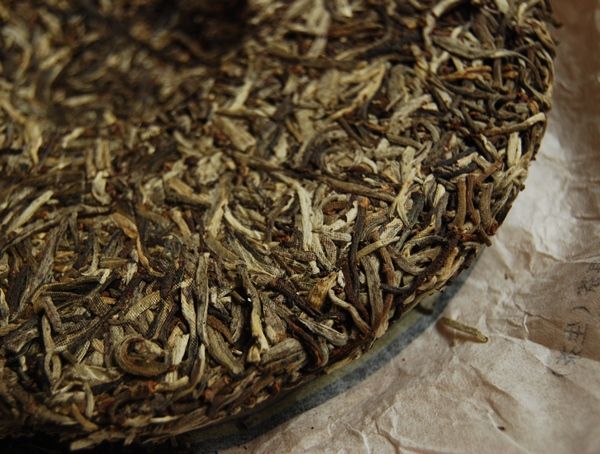
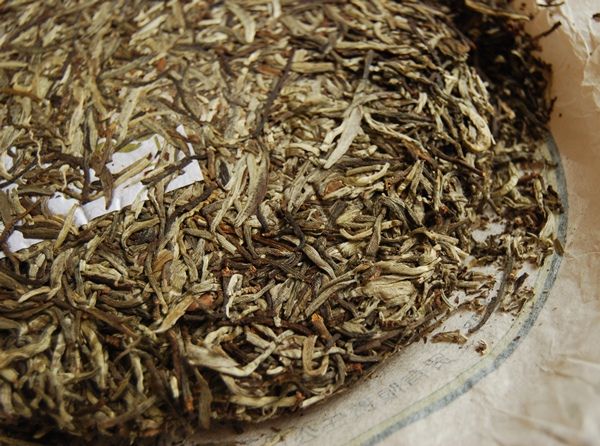
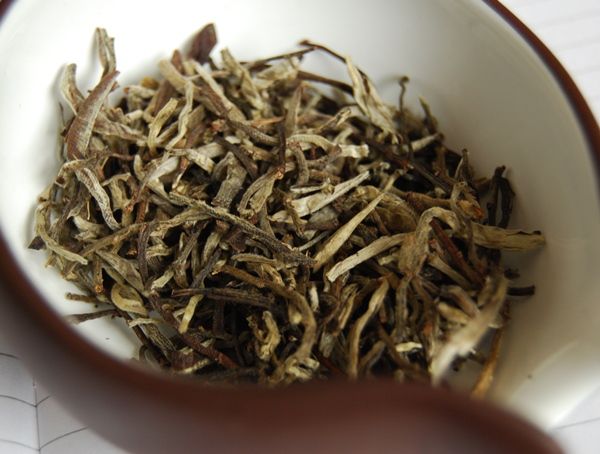
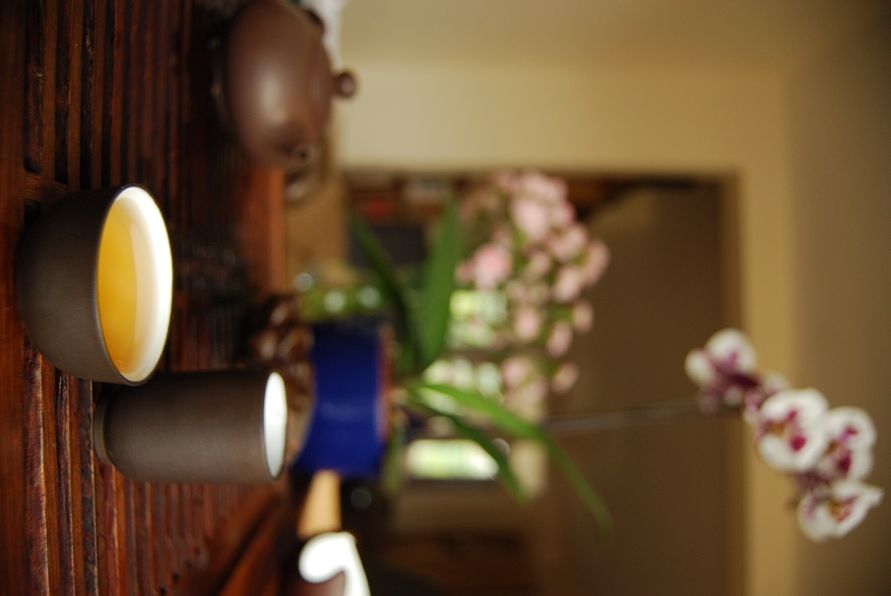
6 comments:
Hello,
I believe that certain sweetness and thickness (which helps mellowness) comes from the fur - once, trying to demonstrate it, I scraped the fur off the leaves using sharp knife and brewed it alone - it was sweet and thick, not much else.
Therefore, I don't reject the hypothesis that the fur should lead to certain mellowness.
Jakub
The power of science!
Hello Hobbes!
I'm the Canadian chap from the comment section a few days ago.
I notice that you described a "fishy" flavour in one of your cakes. Do you have any idea what causes that unpleasantness? The cake I have seems to become quite fishy when I use a liberal helping of leaves.
P.S. Your weather woes are held here as well. A mild 16C and raining, all week long.
Celeborn
Hi, Celeborn,
"Fishy" characteristics can take many forms, some of which are good, some of which are less welcome.
An example of the former is that which I have found in older 7542, with Apache - it is a bean-like, mineral-like character that is loosely approximated by the word "fishy".
This sense is different, to me, from the advanced fishiness of some Japanese greens.
In the unwelcome category of "fishiness" would be those pond-dwelling characteristics from some bad shupu, and even some bad shengpu. These could be due to poor leaves, poor standards of production, or both.
Toodlepip,
Hobbes
I tried a young shupu that had a distinct fishiness fragrance to it. Upon smelling it, my very first thought was the smell of goldfish food :/
Fishy shupu is generally a tea to avoid, I imagine. ;)
Toodlepip,
Hobbes
Post a Comment